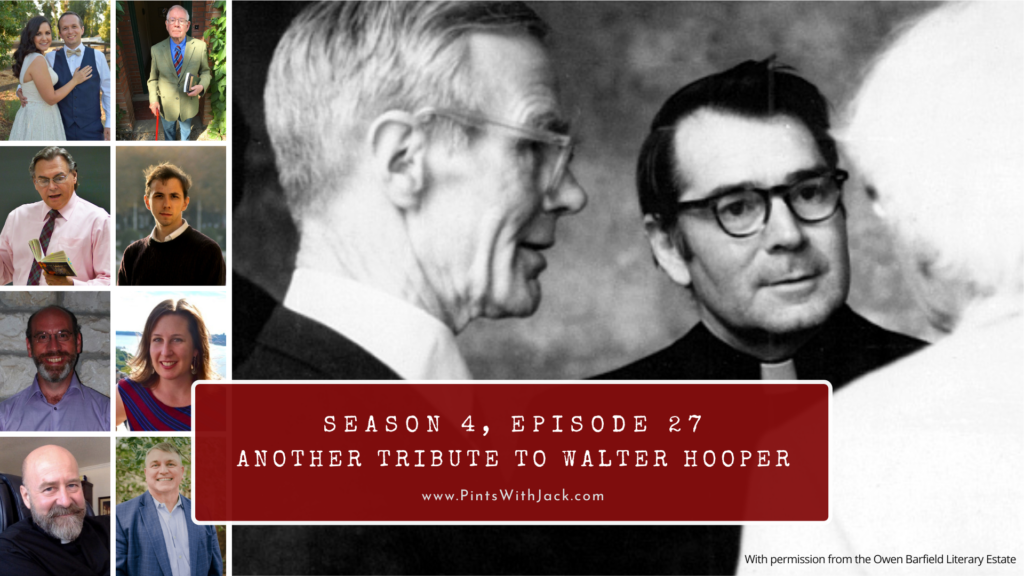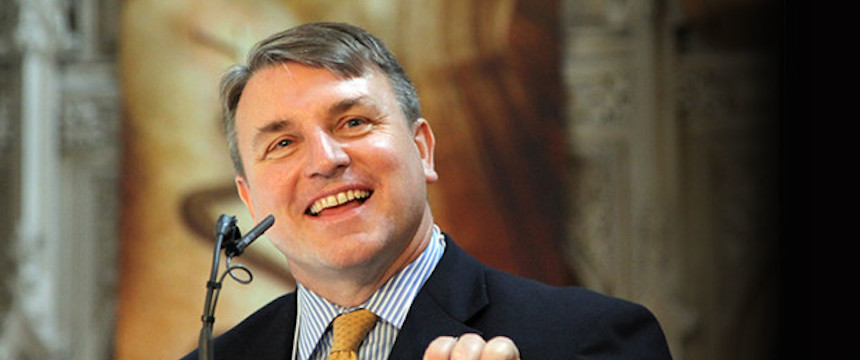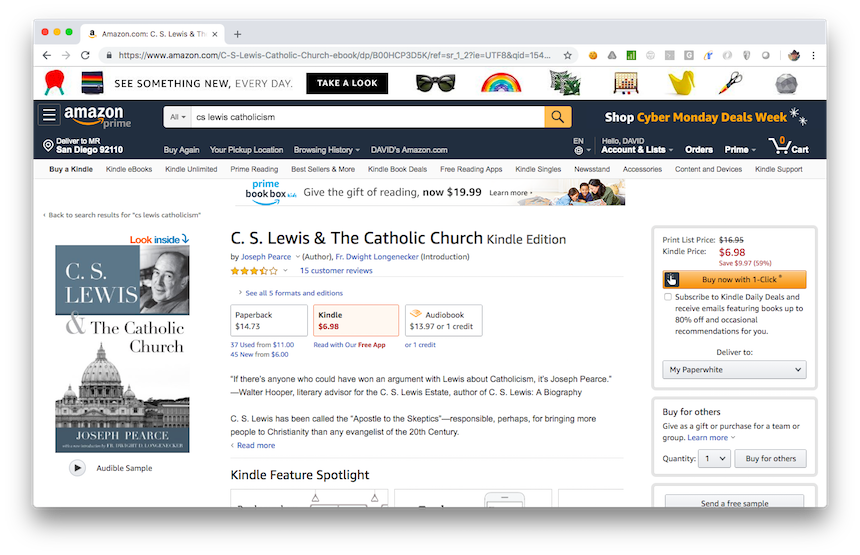Tag: Joseph Pearce
PWJ: S4E27 – Bonus – “Another Tribute to Walter Hooper”


Together with William O’Flaherty and the hosts of The Lamp-Post Listener, we have assembled several tributes to Walter Hooper who recently passed away. This is the fourth episode in the series, and the second which has appeared on this feed.
S4E27: “Additional Tribute to Walter Hooper” (Download)
If you enjoy this episode, you can subscribe manually, or any place where good podcasts can be found (iTunes, Google Play, Amazon, Podbean, Stitcher, TuneIn and Overcast), as well as on YouTube. The roadmap for Season 4 is available here.
More information about us can be found on our website, PintsWithJack.com. If you’d like to support us and get fantastic gifts, please join us on Patreon.
Read morePWJ: S2E27 – AA – Dale Ahlquist


It has been my desire for a while to introduce the listeners to other members of the Inklings, as well as authors who greatly influenced Lewis. Today we look at G.K. Chesterton and our special guest who will be introducing us to this great man is renowned Chesterton scholar and champion, Dale Ahlquist.
S2E28: “After Hours” with Dale Ahlquist (Download)
If you enjoy this episode, you can subscribe manually, or any place where good podcasts can be found (iTunes, Google Play, Podbean, Stitcher, TuneIn and Overcast).
Time Stamps
In case your podcast application has the ability to jump to certain time codes, here are the timestamps for the different parts of the episode.
00:30 – Why we’re talking about G.K. Chesterton
02:02 – Introduction of Dale Ahlquist
03:13 – The drink-of-the-week (and GKC’s favourites)
04:13 – The quote-of-the-week
04:45 – How did you first encounter G.K. Chesterton?
09:00 – What are some of your favourite Chesterton aphorisms?
09:44 – Who was Chesterton?
12:49 – What was his faith background?
16:27 – What was his dynamic with his wife, Frances?
21:24 – What kinds of things did he write and what were some of his most famous works?
24:24 – What was The Everlasting Man about and why did it have such an effect on Lewis?
26:41 – Why is Chesterton not better known?
29:05 – How should people go about starting to read Chesterton?
30:39 – What tips do you have for someone reading Orthodoxy for the first time?
32:10 – Which biography will give you the best sense for the man himself?
33:28 – What do you think of the decision not to open Chesterton’s cause for Sainthood?
37:37 – Is it true that Chesterton inspired Michael Collins and Mohandas Gandhi?
40:17 – How can listeners find out more about The Society of Gilbert Keith Chesterton?
42:28 – Book giveaway information
Distributism Debate

A great debate on Distributism and Free-Markets with Joseph Pearce:
PWJ: S2E10 – AA – Joseph Pearce


Today is another “After Hours” episode! Joseph Pearce has written books on Oscar Wilde, Hilaire Belloc, J.R.R. Tolkien and C.S. Lewis. He is, among other things, the Director of Book Publishing at the Augustine Institute and can be found podcasting over at Faith and Culture.
In this episode, Joseph and I will be discussing his book C. S. Lewis and the Catholic Church, which looks at Jack’s relationship to the Catholic Church and addresses the question asked by many Catholic C.S. Lewis fans: Why did Lewis not convert to Catholicism? Why didn’t he “Swim the Tiber”? We hope that all our listeners, regardless of denomination, will find this discussion interesting and very thought-provoking!
S2E10: “After hours” with Joseph Pearce (Download)
If you enjoy this episode, you can subscribe manually, or any place where good podcasts can be found (iTunes, Google Play, Podbean, Stitcher, TuneIn and Overcast).
Read moreOne minute book review: CS Lewis and the Catholic Church

C.S. Lewis & the Catholic Church is a book which investigates a fascinating question: why didn’t C.S. Lewis convert to Catholicism? After all, many Catholics who read Lewis discover a faith which they very must recognize as Catholic (with a capital “C”). One of his best friends, Tolkien, was a Catholic, he possessed a robust sacramental theology, believed in Purgatory and went to confession regularly. Why did he not “swim the Tiber”?
Joseph Pearce takes the reader through a tour of several of Lewis’ works, particularly The Pilgrim’s Regress, Surprised By Joy, The Great Divorce and Mere Christianity, tracing the threads of Catholic thought which can be found there, as well the points of contention with the Catholic Faith. He also digs into Lewis’ Ulster background, seeing what prejudices may have been deeply laid in his childhood.
One nice addition to this book was the appendix, which recounted the stories of those devoted to Lewis who eventually converted to Catholicism, including his own secretary, Walter Hooper. Lewis may have never formally entered into communion with the Bishop of Rome, but it becomes clear that his writings nevertheless influenced others in their journey “home to Rome”.